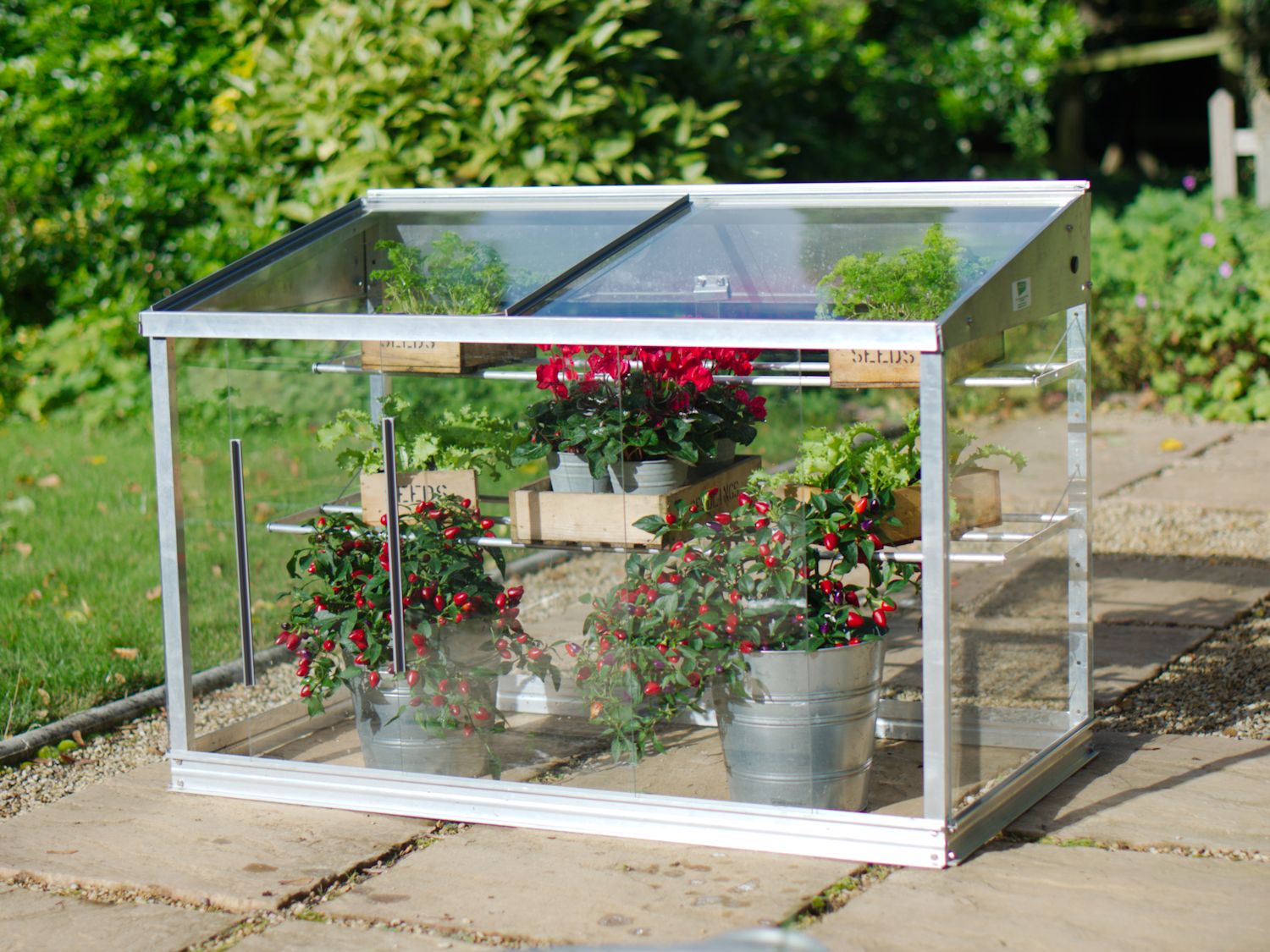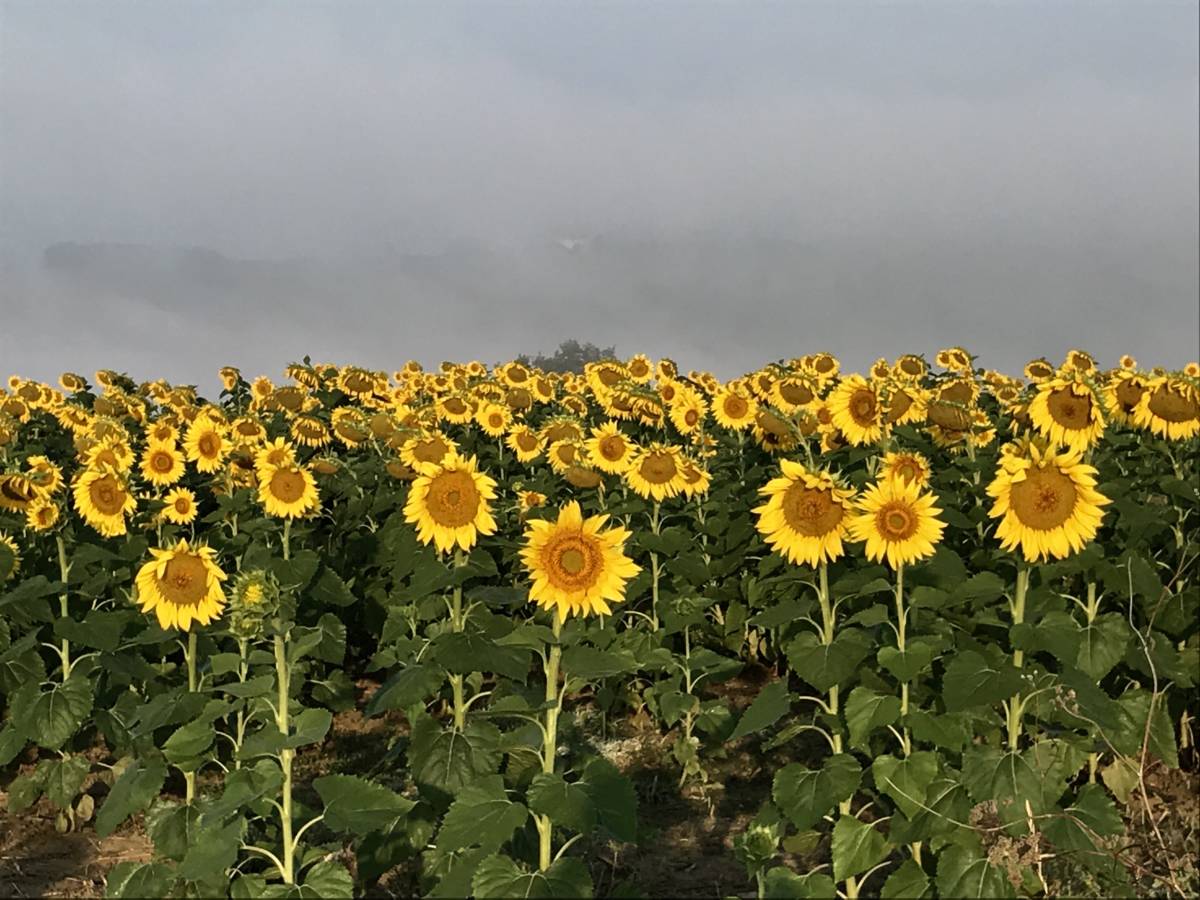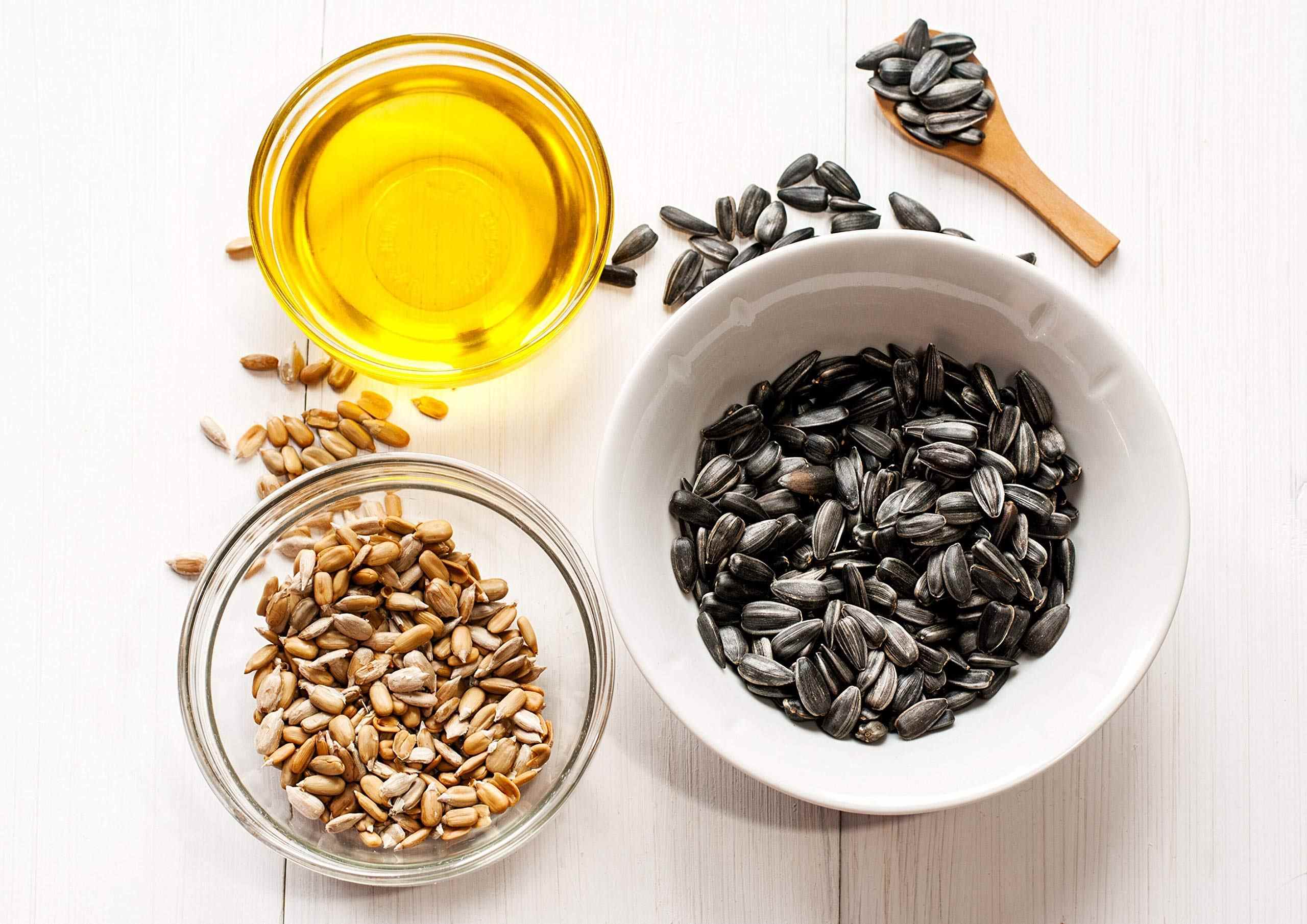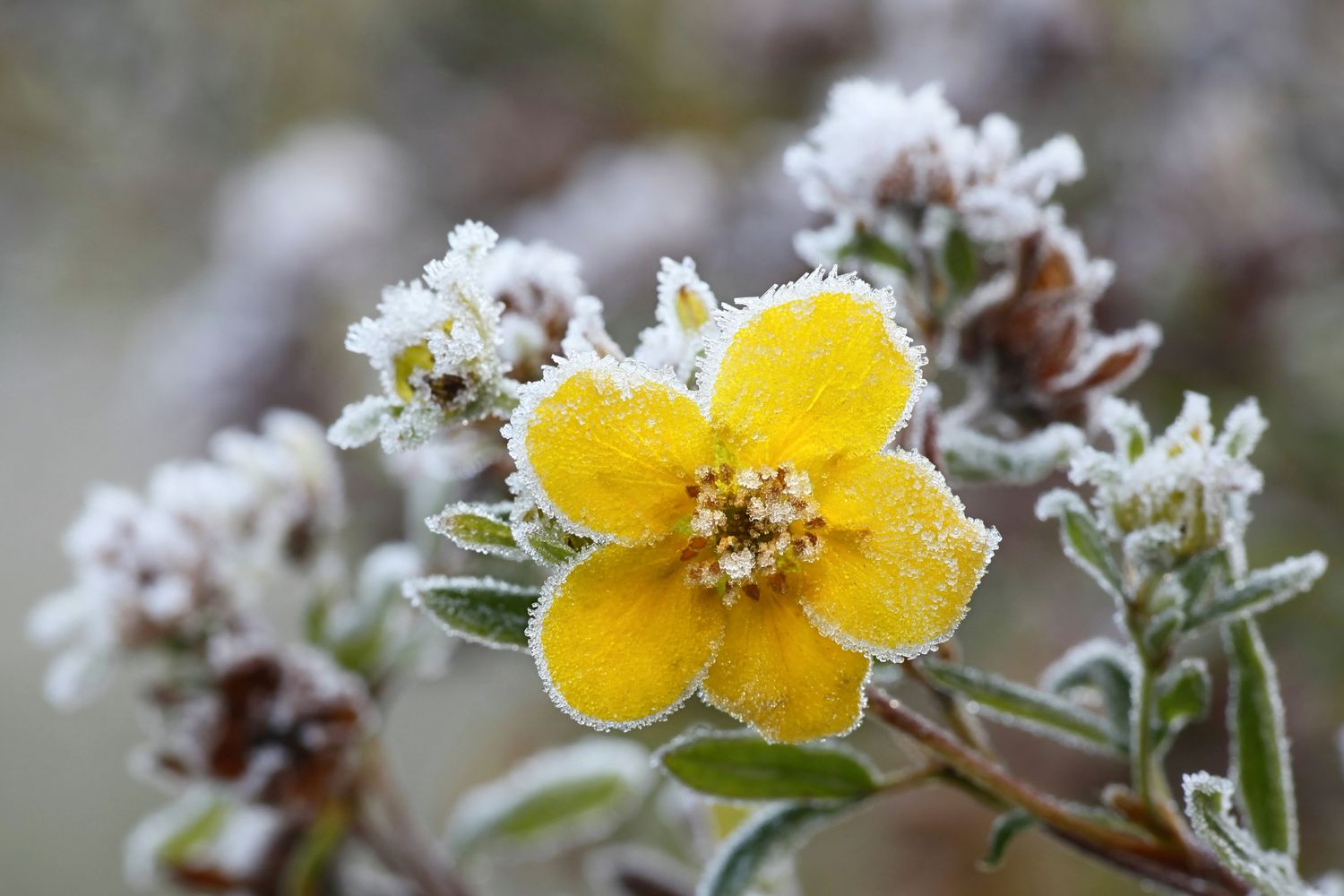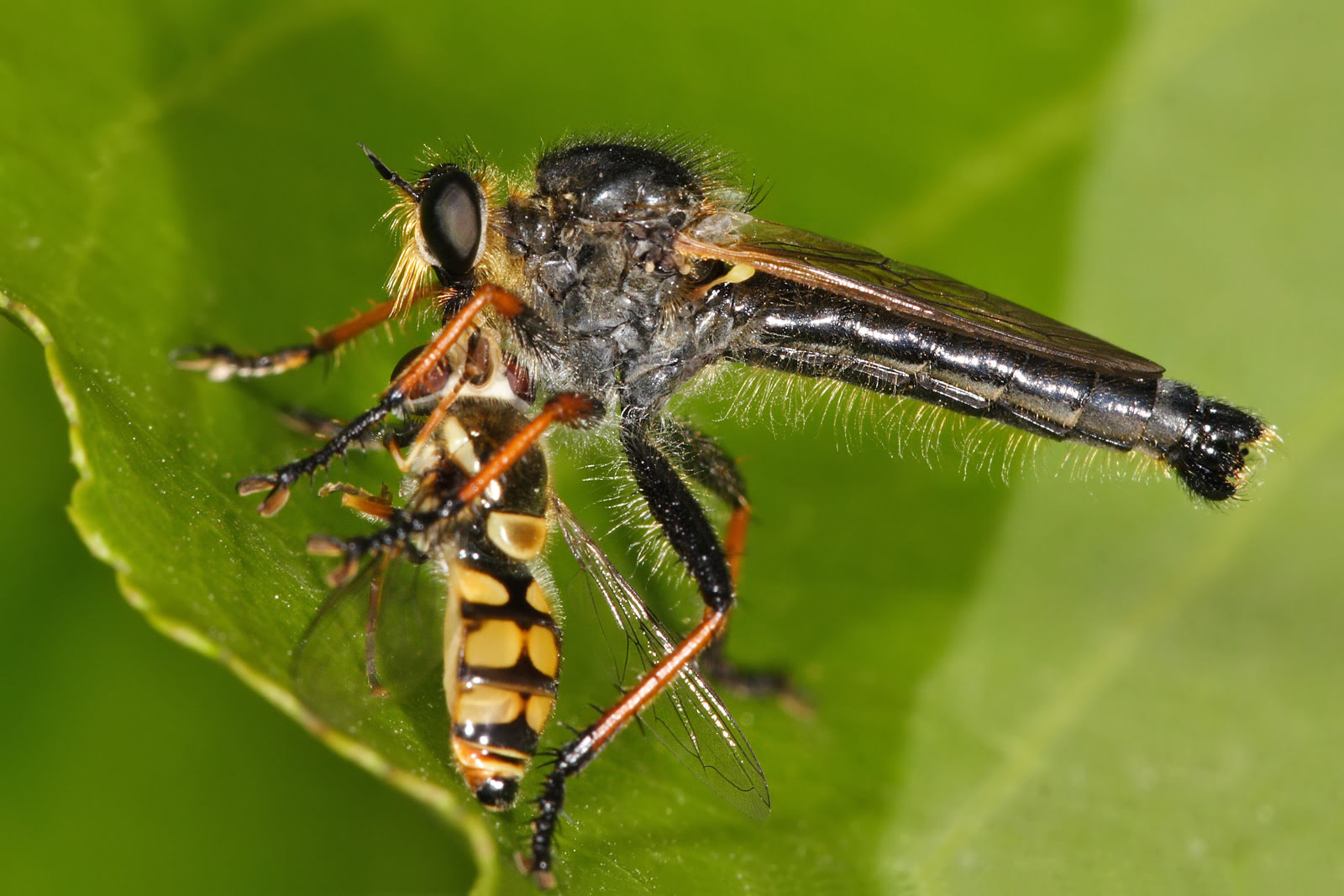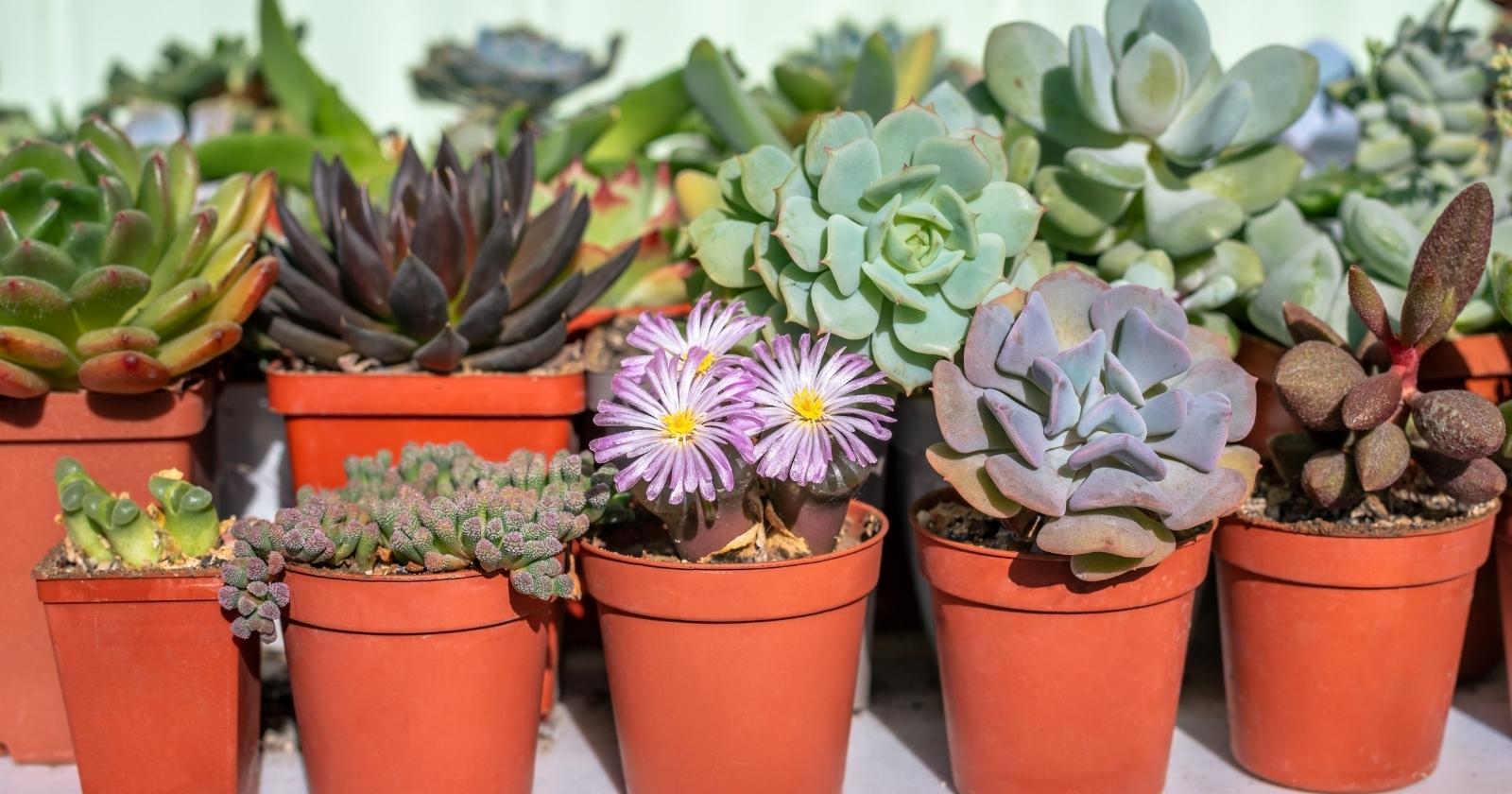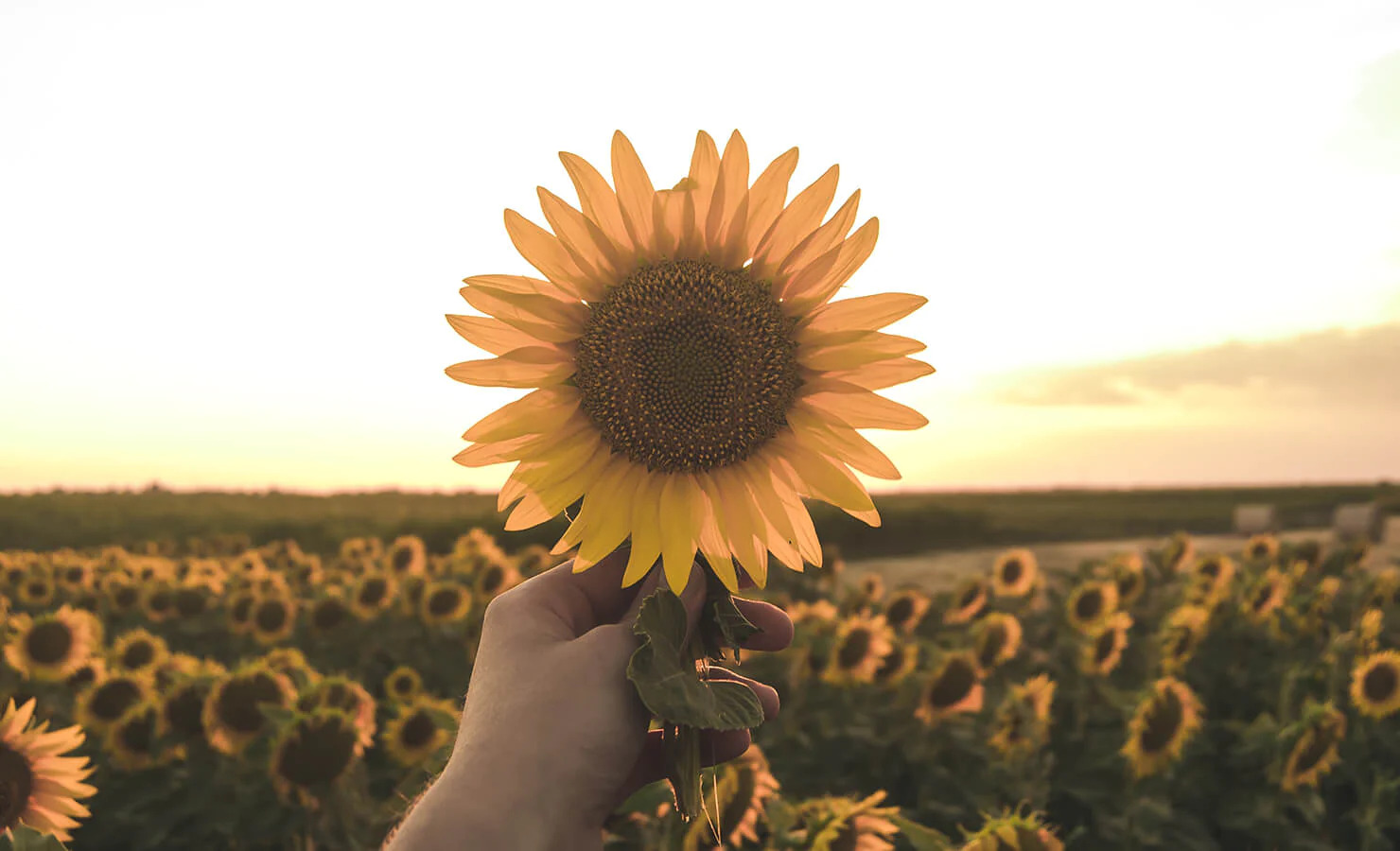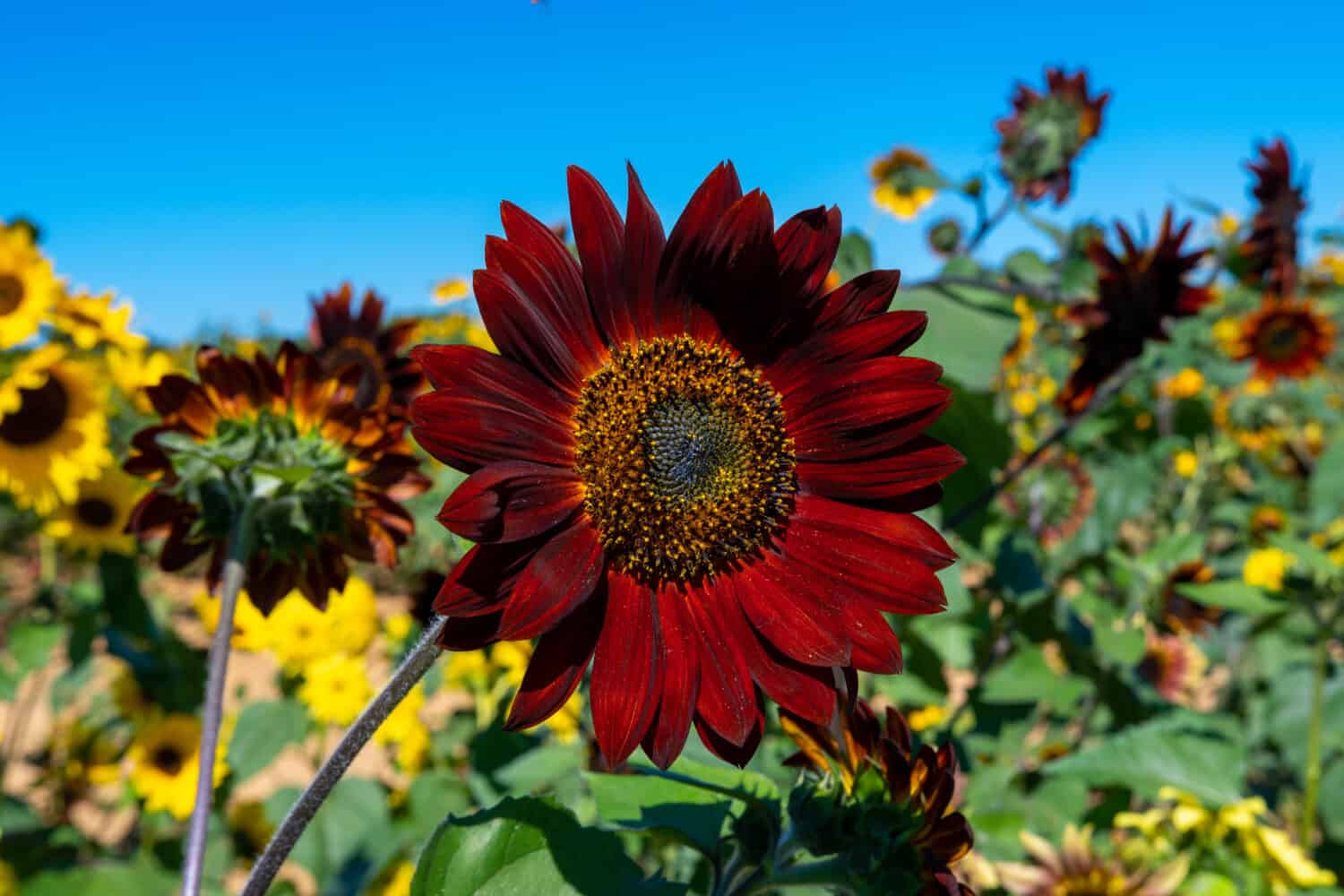Home>Types of Gardening>Ornamental Gardening>What Are The Small Sunflowers Called
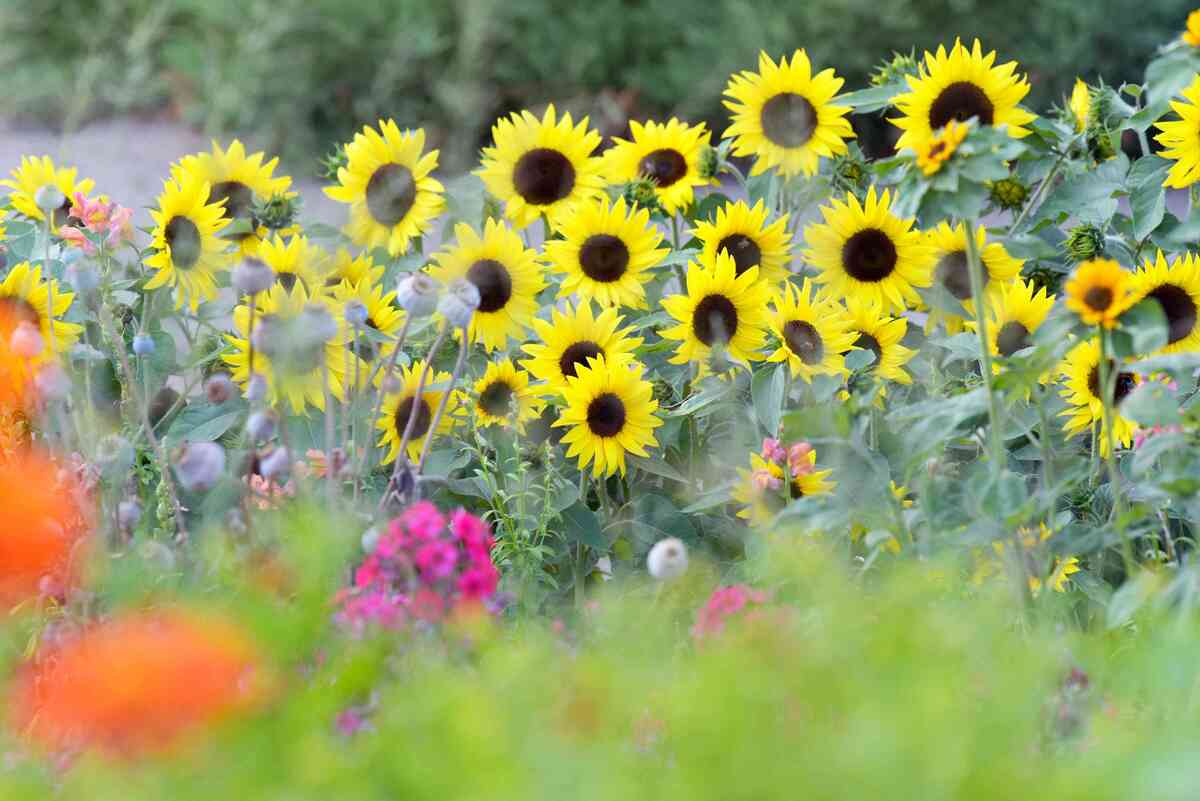

Ornamental Gardening
What Are The Small Sunflowers Called
Modified: January 22, 2024
Discover the beauty of ornamental gardening with small sunflowers. Learn about the different varieties and how to incorporate them into your garden design.
(Many of the links in this article redirect to a specific reviewed product. Your purchase of these products through affiliate links helps to generate commission for Chicagolandgardening.com, at no extra cost. Learn more)
Table of Contents
Introduction
Welcome to the colorful world of small sunflowers! These petite beauties may be small in size, but they are big on charm and bring a burst of sunshine to any garden. With their bright yellow petals and cheerful demeanor, small sunflowers are adored by gardeners and flower enthusiasts alike.
Small sunflowers, also known as dwarf or mini sunflowers, belong to the Helianthus genus and are a delightful addition to ornamental gardens. These compact plants are perfect for those with limited space or for adding accents to flower beds, borders, or containers. While they may not reach the towering heights of their larger sunflower relatives, small sunflowers make up for it with their vibrant blooms and unique features.
In this article, we will explore the characteristics of small sunflowers, popular varieties, tips for growing them successfully, and how to care for these delightful plants. We will also delve into the various uses and benefits of small sunflowers, including their role in floral arrangements. So, grab your gardening gloves and get ready to dive into the wonderful world of small sunflowers!
Characteristics of Small Sunflowers
Small sunflowers may be diminutive in size, but they possess a unique set of characteristics that set them apart from their larger counterparts. Here are some key features to look out for when identifying small sunflowers:
- Compact Size: As the name suggests, small sunflowers have a compact growth habit, typically reaching heights of 1 to 3 feet. This makes them ideal for small gardens, balconies, and patio containers.
- Multiple Bloom Varieties: Small sunflowers come in a range of beautiful bloom variations, including single, double, and multi-petaled varieties. The blooms can be as small as 2 inches in diameter or slightly larger, showcasing stunning shades of yellow, orange, red, and even bi-color combinations.
- Shorter Blooming Period: While large sunflowers can have a long blooming period, small sunflowers typically have a shorter flowering window. However, they tend to produce multiple blooms on each stem, ensuring a constant display of color throughout the season.
- Dwarf Stature: Unlike traditional sunflowers that can tower over 10 feet, small sunflowers have shorter and sturdier stems. This makes them less prone to flopping over or bending under the weight of their blooms, even in windy conditions.
- Attractive Foliage: Small sunflowers often boast lush green leaves that complement the vibrant blooms. The leaves may be heart-shaped, lanceolate, or serrated, adding texture and visual interest to the plant.
- Pollen-Free Varieties: Some small sunflower varieties are bred to be pollen-free, making them an excellent choice for those with allergies. These varieties can still attract pollinators without the inconvenience of pollen.
Overall, small sunflowers offer all the charm and beauty of their larger counterparts, packaged in a compact and manageable size. Whether you’re a seasoned gardener or just starting your gardening journey, these petite sunflowers are sure to bring joy and color to your outdoor spaces.
Popular Varieties of Small Sunflowers
Small sunflowers come in a wide range of varieties, each with its own unique characteristics and charm. Here are some popular varieties to consider for your garden:
- Sunspot: This dwarf sunflower variety is a classic choice for small gardens or containers. It grows to a height of around 2 feet and produces bright yellow blooms with a dark center. Sunspot sunflowers are known for their pollen-free flowers, making them a favorite among allergy sufferers.
- Elf: With its compact size and abundance of blooms, Elf is a delightful choice for adding a pop of color to any garden. This variety reaches a height of approximately 1 to 2 feet and features multiple branches bearing beautiful golden-yellow flowers.
- Choco Sun: If you’re looking for a unique twist on the classic sunflower, Choco Sun is the variety for you. This dwarf sunflower boasts stunning chocolate-brown petals surrounding a dark center. With a height of 2 to 3 feet, Choco Sun adds a touch of drama and elegance to flower beds and arrangements.
- Sunny Smile: As the name suggests, Sunny Smile is a cheerful and vibrant small sunflower variety. Growing to a height of around 2 feet, it produces bright yellow, pollen-free blooms with a dark center. Sunny Smile sunflowers are also known for their extended blooming period, ensuring a long-lasting display of color.
- Harlequin Mix: If you can’t decide on just one color, the Harlequin Mix is the perfect choice. This variety features a mix of bright and bold colors, including yellow, red, and orange, creating a stunning and dynamic display. The plants grow to a height of around 2 to 3 feet, making them a striking addition to any garden or floral arrangement.
These are just a few examples of the many small sunflower varieties available. When selecting a variety, consider factors such as color preferences, growth habit, and overall aesthetic appeal. By choosing a diverse mix of small sunflowers, you can create a garden bursting with color and interest.
Growing Small Sunflowers
Growing small sunflowers is a rewarding and enjoyable experience. Here are some essential tips to help you successfully cultivate these beautiful plants:
- Choose a sun-soaked location: Small sunflowers thrive in bright sunlight, so select a spot in your garden that receives at least 6 to 8 hours of direct sunlight each day.
- Prepare the soil: Sunflowers prefer well-draining soil with a slightly acidic to neutral pH level. Prior to planting, amend the soil with organic matter such as compost to improve its fertility and drainage.
- Sow the seeds: Small sunflower seeds can be directly sown into the ground once the soil has warmed up in the spring. Plant the seeds at a depth of 1 to 2 inches and space them 6 to 12 inches apart, depending on the specific variety’s growth habit.
- Provide adequate water: While small sunflowers are relatively drought-tolerant, regular watering is essential, especially during hot and dry periods. Aim to keep the soil consistently moist but not waterlogged.
- Support the stems: Although small sunflowers are more compact than their larger counterparts, some varieties may still benefit from gentle support. Consider using stakes, trellises, or plant cages to help keep the stems upright and prevent them from bending or breaking.
- Protect from pests: Small sunflowers can attract pests such as aphids and caterpillars. Monitor your plants regularly and take appropriate measures, such as spraying organic insecticides or using natural pest deterrents.
- Deadhead spent blooms: To encourage continuous blooming, remove faded flowers by cutting them just above the first set of leaves. This prevents the plant from putting energy into producing seeds and instead directs resources towards producing new blooms.
- Consider succession planting: Small sunflowers have a relatively short bloom period. To extend the display, consider sowing new seeds every few weeks to ensure a steady succession of flowers throughout the growing season.
By following these guidelines, you can create a thriving garden filled with a kaleidoscope of small sunflowers. With proper care, you’ll be rewarded with an abundance of vibrant blooms that brighten up your outdoor space.
Care and Maintenance of Small Sunflowers
Proper care and maintenance are key in ensuring the health and vitality of small sunflowers. Here are some essential tips to help you keep your small sunflowers looking their best:
- Watering: While small sunflowers are relatively drought-tolerant, it’s important to provide them with adequate water, especially during dry spells. Water deeply and consistently, aiming to keep the soil evenly moist but not waterlogged.
- Fertilizing: Small sunflowers benefit from regular feeding to support their growth and blooming. Use a balanced, slow-release fertilizer or incorporate a layer of compost into the soil before planting. Follow the recommended dosage and application instructions for the specific fertilizer you choose.
- Weeding: Regularly remove weeds around your small sunflowers to prevent competition for nutrients and water. Be careful when weeding, as sunflower roots are shallow and delicate.
- Mulching: Apply a layer of organic mulch around the base of your small sunflowers to help conserve moisture, suppress weeds, and regulate soil temperature. Avoid piling the mulch directly against the stems to prevent rotting.
- Supporting: Depending on the variety, some small sunflowers may benefit from gentle support to keep their stems upright. Staking or using plant cages can help prevent wind damage or bending under the weight of the blooms.
- Pruning: Deadhead spent blooms by cutting them just above the first set of leaves. This encourages the plant to produce more flowers and prevents energy from being wasted on seed production.
- Monitoring pests: Keep an eye out for common pests such as aphids, caterpillars, and snails. Regularly inspect your small sunflowers and take appropriate measures, such as using organic insecticides or employing natural pest deterrent methods.
- Protecting from extreme weather: Small sunflowers may require protection during periods of extreme weather, such as heavy rain or strong winds. Consider using garden fabric or providing temporary shelter to prevent damage.
By following these care and maintenance practices, you can enhance the longevity and overall health of your small sunflowers. With proper attention, your garden will flourish with a delightful display of vibrant and cheerful blooms.
Uses and Benefits of Small Sunflowers
Small sunflowers offer more than just their captivating beauty—they also have various uses and benefits that make them a valuable addition to any garden or floral arrangement. Here are some of the uses and benefits of small sunflowers:
- Ornamental Value: Small sunflowers bring vibrant color and a touch of whimsy to gardens, balconies, and outdoor spaces. Their bright yellow, orange, and red blooms create eye-catching focal points and provide a lovely backdrop for other flowers.
- Attract Pollinators: Sunflowers, including their small varieties, act as magnets for pollinators, such as bees, butterflies, and hummingbirds. These beneficial creatures are essential for the pollination of plants and contribute to the overall health and biodiversity of your garden.
- Edible Seeds: While small sunflowers are not primarily grown for their seeds, some varieties produce small edible seeds that can be roasted and enjoyed as a nutritious snack. These seeds are packed with healthy fats, protein, and essential nutrients.
- Environmental Benefits: Sunflowers have deep roots that help improve soil structure and can absorb pollutants from the soil. Additionally, their above-ground growth provides shade and protection for smaller plants and helps reduce evaporation, conserving water in the garden.
- Cut Flower Arrangements: Small sunflowers make stunning additions to floral arrangements and bouquets. Their compact size and bright blooms add a charming touch to any centerpiece or vase arrangement, bringing a cheerful ambiance to indoor spaces.
- DIY Crafts: The petals and seeds of small sunflowers can be used for various crafts and DIY projects. Dried sunflower petals can be incorporated into potpourri, bath bombs, or infused into oils for homemade skincare products. Sunflower seeds can also be used for bird feeders or as decorative elements in crafts.
- Educational Tool: Growing small sunflowers provides an excellent opportunity for children and gardening enthusiasts to learn about plant life cycles, pollination, and the importance of sustainable gardening practices.
Overall, small sunflowers offer a plethora of uses and benefits beyond their visual appeal. Whether you enjoy their ornamental value, attract pollinators, or explore creative endeavors with their petals and seeds, these petite sunflowers are versatile and bring joy to various aspects of our lives.
Small Sunflowers in Floral Arrangements
Small sunflowers are a wonderful addition to floral arrangements, bringing a vibrant pop of color and a touch of natural elegance to any bouquet or centerpiece. Here are some ideas for incorporating small sunflowers into your floral arrangements:
- Stand-alone Beauty: Let the small sunflowers steal the show by creating a bouquet composed solely of these cheerful blooms. Arrange them in a simple vase, allowing their bright petals and dark centers to command attention.
- Complementary Colors: Combine small sunflowers with blooms in complementary colors to create a visually striking arrangement. Pair them with deep purple asters, blue delphiniums, or red zinnias for an eye-catching contrast.
- Tropical Paradise: Create a tropical-themed arrangement by incorporating small sunflowers with vibrant foliage, such as banana leaves or palm fronds. Add in exotic blooms like bird of paradise or heliconias for a stunning and unique arrangement.
- Country Charm: Embrace the rustic charm by combining small sunflowers with wildflowers and daisies. Arrange them in a mason jar or a wooden basket for a delightful country-inspired floral design.
- Textured Arrangement: Add texture and dimension to your floral arrangement by incorporating small sunflowers with interesting foliage and filler flowers. Use fluffy baby’s breath, feathery celosia, or spiky statice to create a dynamic and visually appealing composition.
- Natural Elegance: Combine small sunflowers with delicate blooms, such as roses or lilies, to create an arrangement that exudes natural elegance. Add some flowing greenery, like eucalyptus or ferns, to soften the overall look and create a sense of movement.
- Garden-Inspired: Create a garden-inspired arrangement by incorporating small sunflowers with other blooms commonly found in a cottage garden, such as daisies, foxgloves, or coneflowers. This combination evokes a whimsical and romantic feel.
Small sunflowers bring a cheerful and lively touch to any floral arrangement, whether it’s a casual bouquet, a centerpiece for a special occasion, or even a bouquet for a wedding. Their compact size makes them versatile and easy to work with, allowing for creativity and personalization in your floral designs.
Conclusion
Small sunflowers may be pint-sized in stature, but they pack a powerful punch when it comes to adding beauty and charm to ornamental gardens and floral arrangements. With their vibrant blooms, compact size, and unique characteristics, they have become a beloved choice among gardeners and flower enthusiasts alike.
Whether you have limited space or simply want to add a burst of color to your outdoor spaces, small sunflowers are the perfect choice. Their compact growth habit makes them versatile for container gardening, flower beds, and borders. They come in a variety of stunning colors and bloom types, allowing you to create eye-catching displays and unique floral arrangements.
Growing and caring for small sunflowers is relatively easy with the right attention and care. They thrive in full sun and well-draining soil, and regular watering and fertilizing ensure healthy growth and blooming. They can attract pollinators, contribute to the environment, and even provide edible seeds for snacking.
When it comes to floral arrangements, small sunflowers add a touch of natural beauty and versatility. Whether used as stand-alone blooms, mixed with complementary flowers, or incorporated into themed arrangements, they bring a cheerful and vibrant presence to any bouquet or centerpiece.
In conclusion, small sunflowers offer a delightful way to incorporate the beauty of sunflowers into smaller spaces or arrangements. Their compact size, vibrant colors, and unique characteristics make them a favorite among gardeners and floral enthusiasts. So, embrace the charm of small sunflowers and let them bring a burst of sunshine and joy to your garden and floral creations!

